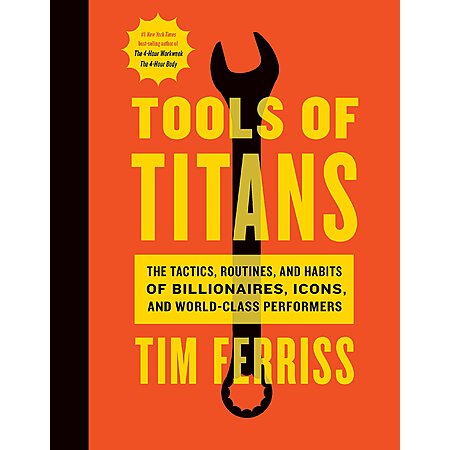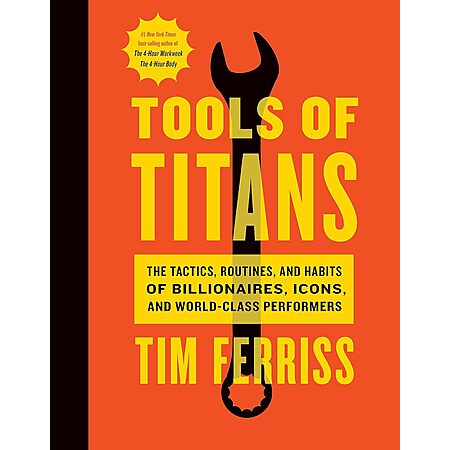expiredphoinix | Staff posted Jan 27, 2025 02:44 PM
Item 1 of 2
Item 1 of 2
expiredphoinix | Staff posted Jan 27, 2025 02:44 PM
Tools of Titans: The Tactics, Routines & Habits of Billionaires (eBook)
$3.00
$20
85% offAmazon
Visit AmazonGood Deal
Bad Deal
Save
Share


Leave a Comment
Top Comments
Emulating people who are successful at what they do in order to achieve analogous success is a natural instinct, but there are reasons why it usually doesn't work. For one, consider that the model worked for this one person, but may not have resulted in success in most instances. For example, if 100 people all attempt something with a 1% success rate, one of them is going to succeed, someone will write a book about how that one person succeeded, many people will attempt it, and 99% will fail.
Just my two cents.
26 Comments
Sign up for a Slickdeals account to remove this ad.
Our community has rated this post as helpful. If you agree, why not thank thewaablah
Our community has rated this post as helpful. If you agree, why not thank Kaijura
Sign up for a Slickdeals account to remove this ad.
Our community has rated this post as helpful. If you agree, why not thank burntorangehorn
Emulating people who are successful at what they do in order to achieve analogous success is a natural instinct, but there are reasons why it usually doesn't work. For one, consider that the model worked for this one person, but may not have resulted in success in most instances. For example, if 100 people all attempt something with a 1% success rate, one of them is going to succeed, someone will write a book about how that one person succeeded, many people will attempt it, and 99% will fail.
Just my two cents.
Emulating people who are successful at what they do in order to achieve analogous success is a natural instinct, but there are reasons why it usually doesn't work. For one, consider that the model worked for this one person, but may not have resulted in success in most instances. For example, if 100 people all attempt something with a 1% success rate, one of them is going to succeed, someone will write a book about how that one person succeeded, many people will attempt it, and 99% will fail.
Just my two cents.
My favorite is Malcolm Gladwell. Takes common sense points, provides "research" to back up those points, reader feels smart because they are essentially reading something that anyone with real world experience could put together on their own, but because they read it in a book and understand the concept, they feel like they gained some insight.
Sign up for a Slickdeals account to remove this ad.
Leave a Comment